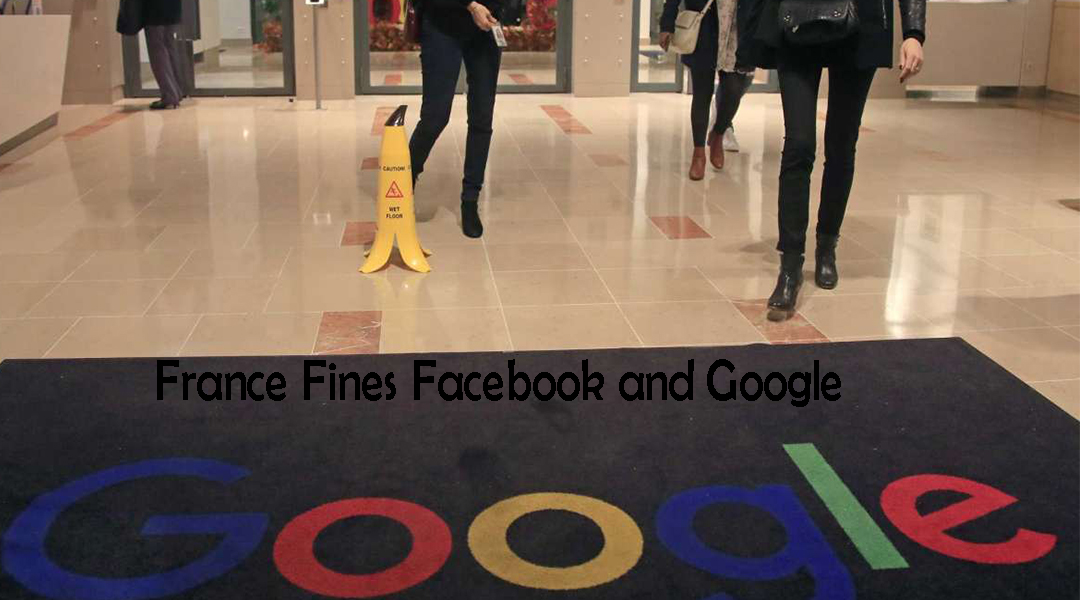France Fines Facebook and Google. Assuming you at any point feel like sites have transformed the basic business of dismissing the following treats into a complex errand that includes close-perusing of numerous exchange boxes, then, at that point, France’s information insurance organization has you covered.

The watchdog (CNIL) has fined Google €150 million ($170 million) and Facebook €60 million ($68 million) for making it excessively befuddling for clients to dismiss treats. The organizations currently have three months to change their routes in France.
France Fine Facebook and Google
With Facebook, CNIL notes that to decline treats French clients initially need to tap on a button that is named “Acknowledge Cookies” (accentuation our own). Such marking “fundamentally produces disarray,” says CNIL, persuading clients to think they must choose between limited options.
With Google, the issue is one of imbalance rather than mislabeling. CNIL noticed that the organization’s sites (counting YouTube) permit clients to acknowledge all treats with a solitary snap.
However, to dismiss them, they need to navigate a few diverse menu things. Obviously, clients are being guided in a specific heading that just so ends up helping Google.
Facebook and Google Are Using Dark Patterns to Push Cookies on Users
According to the verge, EU law expresses that when residents hand over information on the web, they should do as such openly and with a full comprehension of the decision they are making.
CNIL’s judgment is that Google and Facebook are basically deceiving their clients, conveying what are known as “dim examples” a style of unobtrusively coercive UI plan to wangle assent thus overstepping the law.
Thus the fines and the interest that the organizations change their treat UI plan inside 90 days. Inability to do as such dangers extra fines of €100,000 each day, says CNIL.
For anybody especially inspired by the subtleties of European web guidelines (you helpless idiots), the case is additionally fascinating in that CNIL is acting under the power of a touch of EU regulation known as the ePrivacy Directive, rather than the more as of late presented General Data Protection Regulation (GDPR).
France Data Watchdog Has Turned to the more established ePrivacy Detective
Over at TechCrunch, Natasha Lomas offers an incredible clarification regarding the reason why this is, which I’ll give a valiant effort to consolidate. The issue is that GDPR authorization is channeled through the information guard dog of Ireland, where numerous US tech firms find their European base camp.
That specific office has substantiated itself to be a little delayed in running down such protests, which just a skeptic may propose is an integral part of the amicable administrative climate developed by the Irish state to draw in US tech cash in any case.
Along these lines, to get some opportune implementation (or any authorization) France’s information guard dog has gone to the more established ePrivacy Directive, which permits public organizations direct oversight in their own regions.
It’s a successful workaround, and CNIL has recently utilized ePrivacy to fine Google and Amazon on comparative issues. In the meantime, as Lomas calls attention to, Google still can’t seem to confront a solitary administrative assent from Ireland’s information guard dog under GDPR.
The Upshot of All This
What’s the consequence of this? All things considered, assuming that you live in France, you might get a somewhat simpler choice to dismiss treats from Google and Facebook soon.
Which is great, certain, yet scarcely the kind of definitive activity that, assuming you concur with the expressed craving of the EU’s broken, multi-headed information guideline should review the lopsidedness of force between tech firms and normal customers. Yet, that is only the manner in which the treats disintegrate.



